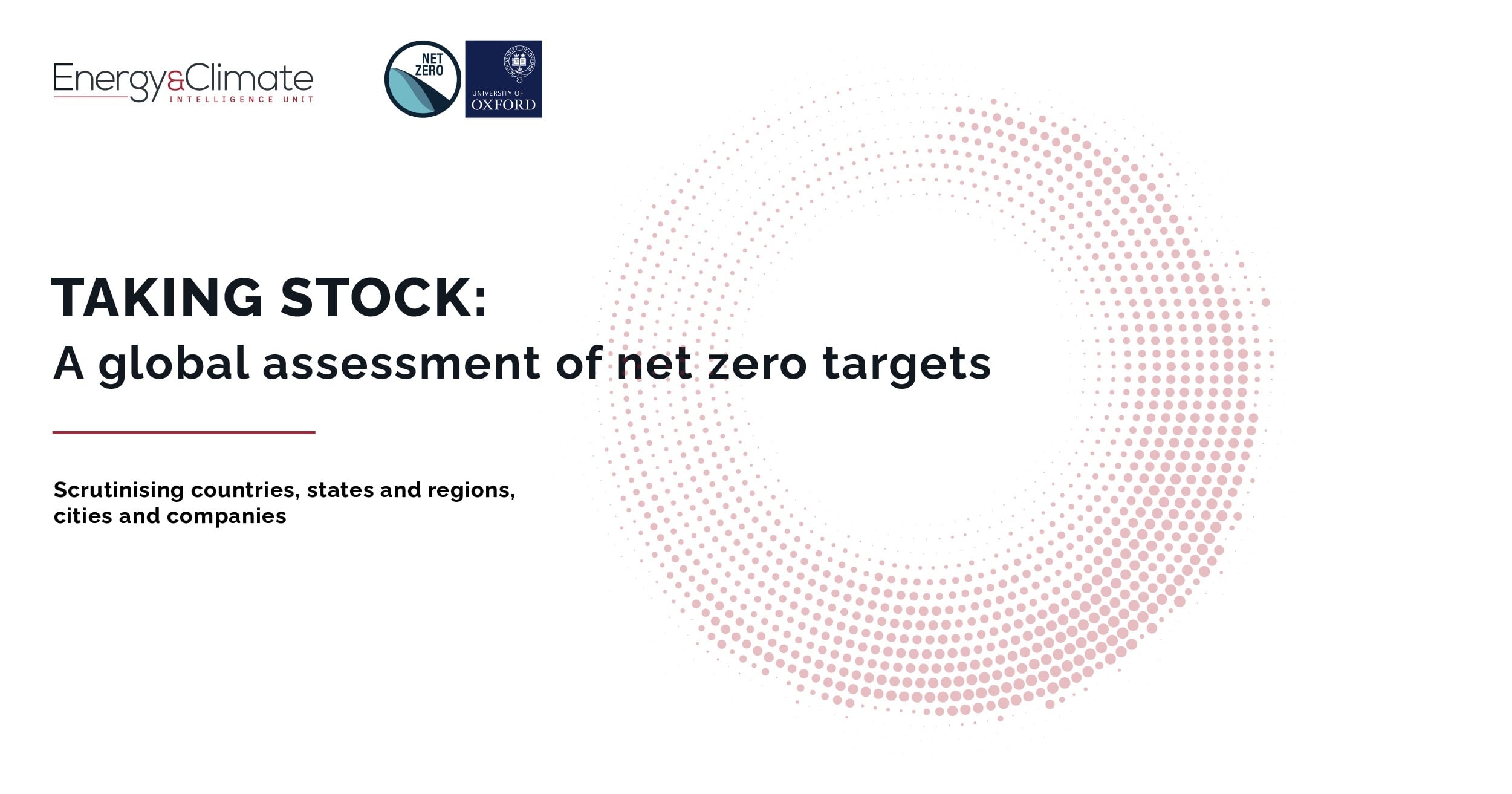
Net Zero pledges go global, now action needs to follow words - Oxford-ECIU report
Net zero targets now cover two thirds of the global economy, according to a report today from Oxford Net Zero and the ECIU (Energy and Climate Intelligence Unit) – even though it was only a decade ago that Oxford climate scientists first showed the need to reach net zero emissions. However, despite the rapid progress, the study reveals, only 20% of these targets currently meet quality tests.
Some 4,000 entities, including every country as well as many states, regions, large cities and companies, are encompassed in the research, which is a systematic analysis of net zero plans, targets and evidence. According to the report, it presents an ‘opening snapshot’ of the current state of net zero commitments.
It reveals the extent to which net zero targets have rapidly become mainstream:
- 61% of global greenhouse gas emissions are covered by national net zero commitments,
- 68% of global GDP is covered by commitments.
- 56% of the world’s population is covered by commitments.
While coverage is encouraging, the researchers have looked deeper into the quality of commitments using the ‘starting line’ criteria set by the UN’s ‘Race to Zero’ campaign. These follow the four principles of Pledge, Plan, Proceed and Publish, which climate-leading entities aim to achieve in time for November’s climate conference COP26.
Net zero isn't only a clear and simple target. It's what the planet needs in order to halt the rise in temperatures
Dr Steve Smith
The report finds that the numbers currently meeting all the criteria are:
- 15 countries (5% by emissions).
- 14 states and regions (85 million people).
- 8 cities (24 million people).
- 110 companies ($2.4 trillion by sales).
Co-author Dr Steve Smith, Executive Director of Oxford Net Zero, says, ‘Net zero isn't only a clear and simple target. It's what the planet needs in order to halt the rise in temperatures. Net zero targets are most useful when they include a focus on near-term ambition, clear plans, and reporting and other governance mechanisms that will help actors stay on track.’
But, according to today’s report, ‘These commitments vary hugely in their quality...some commitments contain key details such as the greenhouse gases covered, clarity on use of offsets, and (for businesses) whether they cover emissions from the company’s operations...However many have not published these details as yet.’
While the rapid uptake of net zero targets is encouraging, we need much more clarity from actors on how they plan to get there
Dr Thomas Hale
Co-author Dr Thomas Hale from the Blavatnik School of Government says, ‘While the rapid uptake of net zero targets is encouraging, we need much more clarity from actors on how they plan to get there. It’s particularly important that actors clarify their approach to offsetting. Although some offsetting may be needed for so-called “residual emissions” in certain sectors, the most important priority is immediate emissions reductions. If every company and country relies on offsets and not enough on actual emission cuts, we simply won’t be able to accommodate these globally.’

Kate Cullen, co-author and Oxford Net Zero Policy Researcher, maintains, ‘Work such as this is of vital importance in helping to set a baseline for net zero targets globally so that it is possible to better track and measure these, and also to help develop criteria for measuring how robust plans are. Net zero is already a useful lens through which to view progress on climate change; robust monitoring, evaluation and assessment will help improve it.’The report concludes, ‘Net zero has come a long way in a very short time. A priority for governments, local authorities, investors and civil society over this and following years lies in turning pledges into plans, showcasing successes, highlighting empty promises, and ensuring that racing to zero means a race to integrity rather than just intention.’
 Statins do not cause the majority of side effects listed in package leaflets
Statins do not cause the majority of side effects listed in package leaflets